what iS MERCE CORRA
Our goal: Access to education
Merce Corra is a non-profit, non-governmental organization that pursues the following objectives:
Giving girls an education
Providing vocational training to youth
Providing support and training to the women's association
Provide assistance to the volunteers who will come with us.
Provide assistance and medical equipment to the rural community health center.
Giving girls an education
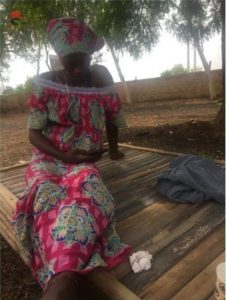
With the experience we have had with early marriages, with the help of the town hall of the rural community and the imam of the mosque of Tambacounda, (father of my dear project partner) we will draw up a document, a commitment that the girl’s father will not marry her until she either finishes her studies, or she decides to finish her education to start a new life.
Once she has decided to continue her studies, the normal way will be that once she has finished her primary studies in her village, she will go to live in Dialakoto, where her village belongs at the municipal level in the rural community, in the house of a woman, who is a widow and has a daughter married to a Spaniard and lives in Hospitalet de Llobregat, who has the possibility to take her in, and with our help, she will be able to give her bed and feed her. This help will be calculated and established, with the approval of the board, to cover the cost of food, school fees and the necessary school supplies, and with this we will cover her intermediate studies. To calculate this cost, we will have the help of the mayor’s office of the rural community. At the end of these studies, we will have to send the student to study in the provincial capital, Tambacounda, or even in the capital of the country, Dakar.
In Tambacounda as well as in Dakar, we will try to get room and board through the Dominican Sisters (we have several religious orders in Senegal, such as Franciscans, Dominicans, Augustinians, Jesuits and Discalced Carmelites) whom we have already contacted to see what possibilities there are to make a kind of college for our students. This project is postponed until three years from now, when our scholarship students will be close to reaching this point.
Providing vocational training to youth
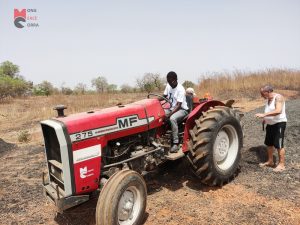
Our project has been very well accepted by the mayor’s office of the community, and to help us raise funds to help the girls with their studies, they have given us some land to cultivate, very close to the river, so we will be able to cultivate all year round since we have water at our fingertips. In addition, because of the amount of land they have given us, we are already collecting agricultural material to help us work it.
We are going to give employment to several villagers, who will be directly linked to our organization, which will force us to have an official representation in Senegal to comply with the legality both in employment and in the taxes that can be generated by this activity and its commercialization.
As a result of this, we see the opportunity to provide agricultural training, both at the level of using mechanical means, with all our culture of organic farming and crop rotation to increase yields and improve the land.
We are going to implement classes of mechanics to be able to fix all types of agricultural machinery and at the same time “modern” mechanics where we can interpret the diagnosis that the computers will give us of the problem and how to solve it, now a mechanic is no longer worth the practice and years of learning, you must have a basis of studies to work with computers. (We already have contact with the San Juan Bosco school of Tambacounda to see what help we can provide at teacher level and or places for our apprentices).
At the volunteer level, we have a retired mechanic who has offered to come and help us and promote this professional training.
Providing support and training to the women's association
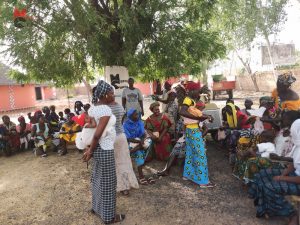
As in all Senegal, in the villages, the women are the ones who really work. They organize themselves among themselves, even becoming an association, so that together, supporting each other, they can have food every day. In some villages they even have a vegetable garden, in which they all work and benefit from it.
Since we are going to “be” farmers, we will give some material and training to the women’s association of the village, since it is the solution to their annual food without depending on the rainy season, because here, among them, they water the garden manually to get their vegetables.
Provide assistance to the volunteers who will come with us.
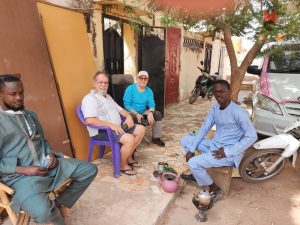
We are honored to have volunteers come forward to help carry out these projects, both at headquarters and in the field. They will be treated as indicated to us by the law of volunteering (Law 45/2015, of October 14).
We transfer the rights and obligations that any volunteer will have:
Your rights as a volunteer are:
- To receive, both initially and permanently, the information, training, guidance, support and, where appropriate, material means necessary for the exercise of the functions assigned to you.
- To be treated without discrimination, respecting your freedom, dignity, privacy and beliefs.
- To actively participate in the organization in which you are inserted, collaborating in the development, design, implementation and evaluation of programs, according to their statutes or rules of application.
- To be insured against the risks of accident and illness arising directly from the exercise of the volunteer activity, with the characteristics and for the insured sums established by regulation.
- To be reimbursed for expenses incurred in the performance of your activities.
- To have an identification accreditation of your status as a volunteer.
- To carry out your activity in the proper conditions of safety and hygiene according to its nature and characteristics.
- Obtain respect and recognition for the social value of your contribution.
- Receive a certification from the organization that accredits the development of your voluntary action.
Your Duties: according to the law of volunteering, volunteers are obliged to
- Fulfill the commitments acquired with the organizations in which they are integrated, respecting their purposes and regulations.
- Keep, where appropriate, confidentiality of the information received and known in the development of their volunteer activity.
- Refuse any material consideration they may receive either from the beneficiary or from other persons related to their action.
- Respect the rights of the beneficiaries of their volunteer activity.
- To act in a diligent and supportive manner.
- To participate in the training tasks foreseen by the organization specifically for the activities and functions entrusted to them, as well as those that are permanently required to maintain the quality of the services they provide.
- Follow the instructions appropriate to the purposes given in the development of the activities entrusted.
- Properly use the accreditation and badges of the organization.
Respect and take care of the material resources made available by the organizations. - In the case of people participating in volunteer activities involving regular contact with minors, they must prove that they have not been definitively convicted of crimes against freedom, sexual indemnity, trafficking and exploitation of minors. For this purpose, they must provide a negative certification from the Central Registry of Sexual Offenses.
Provide assistance and medical equipment to the rural community health center.
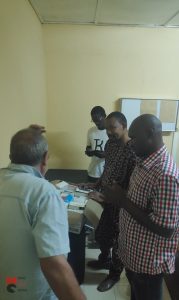
Not being a health organization, we can give little support to the health centers that exist in the rural community, and in some villages.
These are run by health workers, some with official training as nurses, others by personnel who have received health training, sometimes done by an NGO that has passed through there, but basically and with a lot of good will, they do the best they can for the good of the population. Health care is totally paid, as well as all medicines, with the exception of some governmental campaign to try to fight malaria, which both mosquito nets and intravenous quinine were free of charge.
Here we will be able to ask for donations to the laboratories in Spain to be able to take basic medication and cover their needs, since the dialogue of what they need will be a mandatory practice for all of us, including any volunteer who accompanies us.
